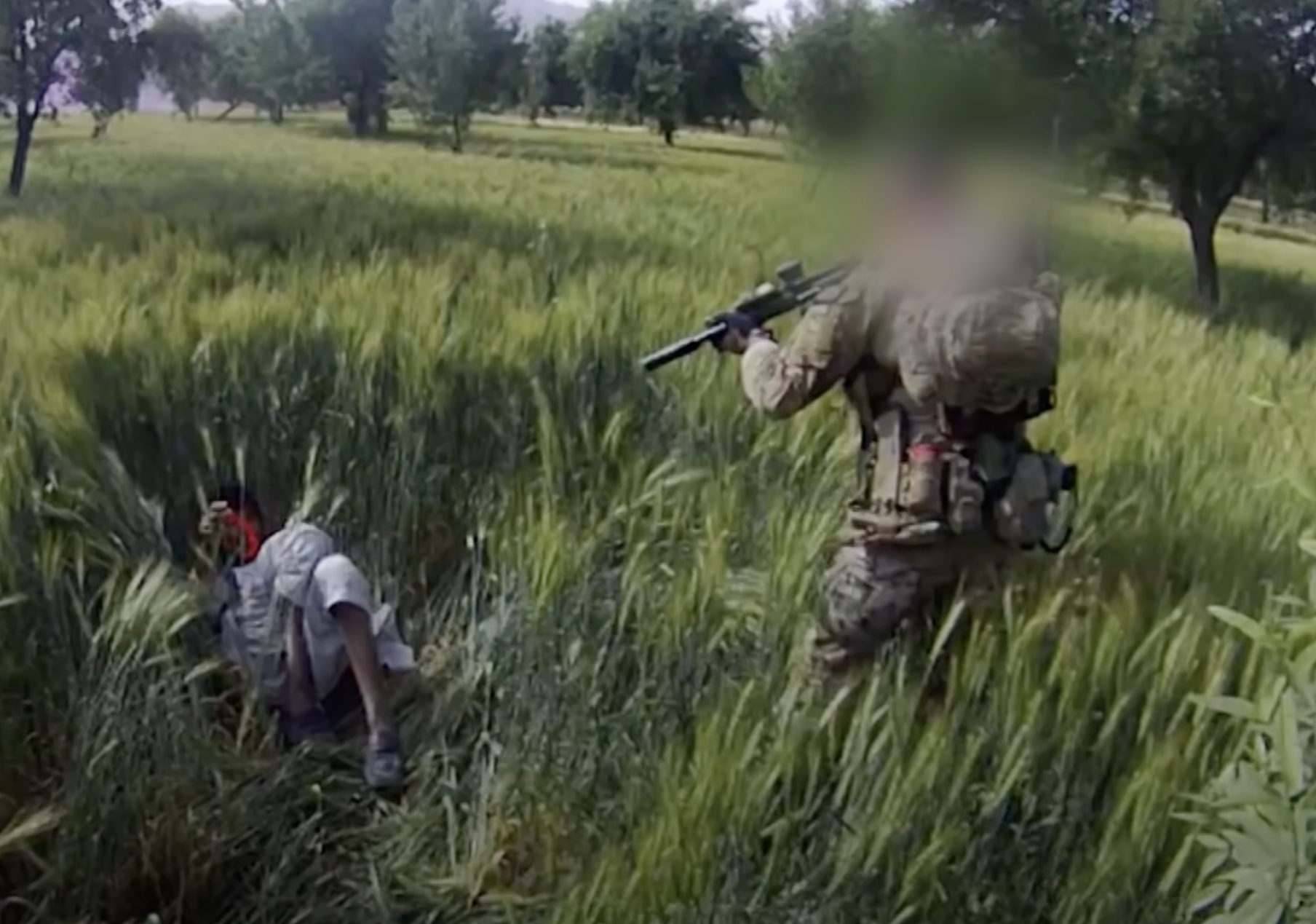Internal report on Australian special forces war crimes in Afghanistan ‘gut-wrenching’
Written By: Kevin Rennie
Screenshot: Australian Broadcasting Corporation Four Corners video 16 March 2020 ‘Killing Field’
This story by Kevin Rennie originally appeared on Global Voices on 25 November 2020.
Global Voices — A report published on November 19 into alleged war crimes by special forces in Afghanistan has stunned Australians. Australia has had troops in Afghanistan since 2001 as part of the International Security Assistance Force. Combat troops were withdrawn in December 2013, with 400 trainers and advisers remaining till today.
Despite media stories and widespread rumours of troop misconduct, the Afghanistan Inquiry report has been described as a horrific bombshell.
The inquiry was conducted by Paul Brereton, a judge and Army reserve Major General. The independent investigation, commissioned by the Inspector-General of the Australian Defence Force (ADF), reviewed over 20,000 documents and 25,000 images and interviewed 423 witnesses. “57 incidents and issues of interest” were examined in detail.
The investigation followed a 2016 review of special forces culture by military sociologist Dr. Samantha Crompvoets. Crompvoet's investigation was commissioned by the ADF in 2015 after rumours of war crimes circulated in the special forces community. She found that there was, “illegal application of violence on operations, disregard for human life and dignity, and the perception of a complete lack of accountability at times.” The review has a comprehensive list of media reports about special operations overseas from 2000 to 2015 but was finished before the sensational 2017 Afghan Files revelations mentioned below. Her review did not document specific incidents. Media stories helped to inform the Brereton investigations but are not specifically detailed in its report.
Guardian Australia reporter Paul Daley summarised the background and findings of the recent report:
“For more than four years, the Maj Gen Justice Paul Brereton has investigated allegations that a small group within the elite Special Air Services [SAS] and commandos regiments killed and brutalised Afghan civilians, in some cases allegedly slitting throats, gloating about their actions, keeping kill counts, and photographing bodies with planted phones and weapons to justify their actions.”
Among the findings of the Brereton report are the following:
39 Afghans were killed and 2 others treated cruelly between 2009 and 2013. 25 current or former ADF personnel are implicated in one or more of the 23 incidents identified.
The killings did not happen ‘under pressure in heat of battle’.
Junior soldiers were required by patrol commanders to shoot a prisoner for ‘their first kill’, a practice called ‘blooding. The commanders were usually senior NCOs (non-commissioned officers).
So-called ‘throwdown’ weapons were carried by Special Operations Task Group to be placed next to bodies to justify killings.
This screenshot is an example of the heavily-redacted nature of the report, with names and other details blacked out:
Screenshot: Brereton report extract (page 73).
Incidents involving 19 individuals have been referred to the Australian Federal Police (AFP) for criminal investigation, which may result in murder charges.
The report also explores the fostering of a ‘warrior hero culture’ as a contributing factor. An example of the toxic culture emerged in September 2020 when an Instagram account run by special forces soldiers, past and present, mocked war crimes allegations. Many Australians on social media were appalled at the time:
The report has dominated social media. Afghan-Australian human rights lawyer Diana B. Sayed posted this statement on Twitter:
There has been ‘shock and anger’ in Afghanistan. Hani Marifat, CEO of the Afghanistan Independent Human Rights Commission, raised the implications for other nations:
The Australian government’s intention to pay compensation to the families of victims in Afghanistan has been welcomed.
However, not everyone accepts the report’s recommendations:
The report found that ‘no evidence that there was knowledge of, or reckless indifference to, the commission of war crimes, on the part of commanders at troop/platoon, squadron/company or Task Group Headquarters level, let alone at higher levels such as Commander Joint Task Force 633, Joint Operations Command, or Australian Defence Headquarters.’
In an article on The Conversation, veteran journalist Michelle Grattan questioned how it was possible for those up the chain of command to not know.
“If senior officers did not pick up gossip and whispers, surely they should have been enough aware of the broad special forces culture to know that extensive checks should be in place to guard against the ever-present threat of misconduct.”
Former soldier Dr. Julian Fidge believes that the culture of military leadership has led to a lack of accountability at higher levels:
A potential consequence of the recent report concerns former SAS member Ben Roberts-Smith, a recipient of Australia’s highest military honour the Victoria Cross. The Court has directed him to hand over documents from the Brereton inquiry. The documents may reveal whether he is implicated as a suspect. His old SAS squadron is to be disbanded as a result of the recent report. Roberts-Smith is currently suing newspapers for defamation.
Whistleblowers and the media
Between 2014 and 2015, Australian Army lawyer David McBride leaked information on war crimes in Afghanistan to the Australian Broadcasting Corporation (ABC). A criminal prosecution against McBride is still proceeding. There are many people calling for the charges to be dropped:
However, Federal prosecutors are not proceeding with charges against ABC journalist Dan Oakes as it was not in the public interest. Oakes helped expose secret defence force documents leaked to the ABC in 2017 (also known as the Afghan Files), he was also one of the journalists at the centre of an Australian Federal Police raid on the ABC in June 2019.
The chief of the ADF, Angus Campbell, has been accused of hypocrisy:
Colin Hocking blames the Federal police and Prime Minister Scott Minister for the pursuit of the media:
On the broader front, the ramifications of these disturbing events will be playing out for years to come, especially criminal charges.


